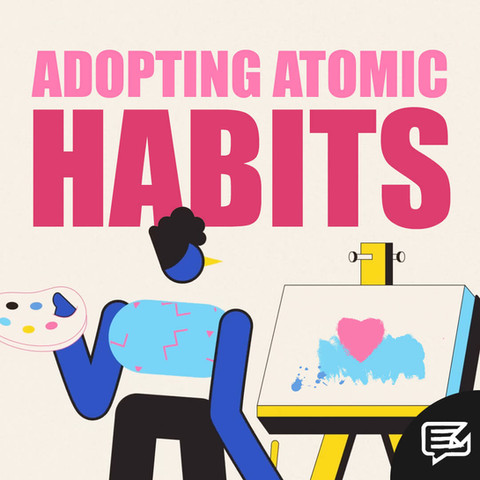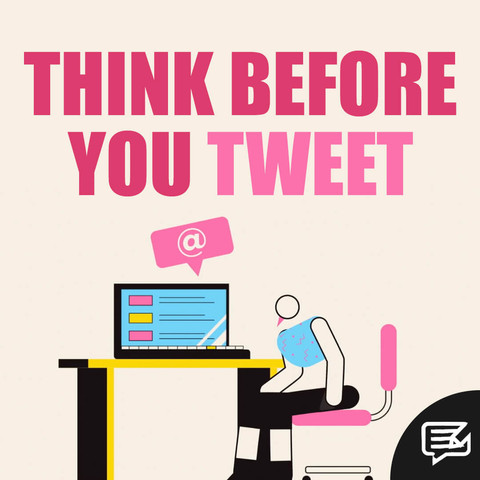
23.10.21
PAPERCHASE: THE NEXT BLOCKBUSTER?
In January 2021, the BBC reported that stationery chain Paperchase was on the brink of administration. It was sad news for anyone with a penchant for avocado-themed greetings cards, but worse news for the company’s 1,500 employees. Thankfully, 1,000 or so jobs were saved when Aspen Phoenix Newco, backed by Permira Debt Managers, stepped in as buyers.
Still, 27 stores were permanently closed, leading many to question where did it all go wrong for Paperchase?



They have an online offering, a strong social media presence and a loyal customer base, so why isn’t that enough?
One Twitter user pondered:
“As #stationeryretailer #Paperchase teeters on the edge of administration, a quick check shows it sells online, has 38.2k Twitter followers, and posted no messages since Dec 5. Surely they could have used #socialmedia and #digitalmarketing better than this?”
Another added:
“Whenever I see a gloomy headline I turn to the Tarot. Paperchase should go digital, have a paywall, include a charity give - and do a deal with online gift card companies.”
Whilst “shoulda, woulda, coulda” sentiments aren’t particularly helpful, they do serve to highlight what might have been done better in a world where consumers have come to expect speed, convenience and personalisation.
With multiple lockdowns inevitably taking their toll on bricks-and-mortar stores, many retailers with an online offering thrived. Take Papier, for example. Described in a Grazia article as “the millennial-friendly online stationery company”, Papier saw sales increase by 300% in the first few weeks of lockdown:
“[Papier] has seen demand for greeting cards, notecards and writing paper triple in the past month, a trend that is also reflected in Google data where searches for birthday cards, for example, have increased by 400%. The irony of using a digital service to access a distinctly analogue tradition is testament to our complex times – and also illustrative of the fact that people are trying to find new and creative ways to communicate with loved ones.”
It’s worthy of note that Papier offers personalisation options, even releasing a range of “wedding postponement cards” and “Love from Afar” card sets in response to the pandemic. Paperchase, however, have failed to capitalise on demand for the personal touch.
In February 2021, Moonpig – a company 32 years’ Paperchase’s junior – was valued at £1.4bn after its first day on the stock market. A few weeks before flotation, The Guardian reported:
“The decision to float comes after a stellar year for the company, which sells cards that can be personalised as well as a range of gifts including flowers, prosecco, gin, beer and chocolate. The Covid-19 pandemic has led to a boom in sales, as Moonpig won 1 million new customers in the first eight weeks of the first national lockdown in the spring.
“The firm delivered 46m cards and 7m gifts and flowers in the 12 months to October, and it deals with up to 300,000 orders a day, one third of which come via its app. Moonpig made £156m in sales in the six months to the end of October, compared with £173m for the entire previous year.”
Paperchase has an online store. They also have a presence on Amazon. As I write, they boast over 400K followers on Facebook and 225K on Instagram. Moonpig, by comparison, has 180K followers on Facebook and just 20K on Instagram. Paperchase’s social media team are clearly doing something right, but it’s seemingly not enough.
At some point in the past, the bods in charge at Paperchase chose not to pivot. Theirs was a bricks-and-mortar offering – a place where you could while away an hour browsing their bright, beautiful and (quite often) bonkers product lines. Prioritising the in-store experience above all else was a formula that worked for over fifty years. But then came the pandemic…
With high street stores forced to close their doors for undefined periods, and with little notice, the Moonpigs, Amazons and Deliveroos of the world were ready and waiting to step in.
You only need look at the disparity between Paperchase and Moonpig’s delivery options to see why the latter has thrived. Moonpig offers Royal Mail First Class postage for 85p with delivery (to you or to the recipient) within 1-2 working days. Delivery of a single card from Paperchase for your nan’s birthday will set you back £2.99 in postage and take 3-5 working days to arrive. Oh, and don’t forget 76p for a stamp and a journey to the post box once you’ve added your message…
Paperchase’s situation is reminiscent of Blockbuster’s demise in the early noughties. In an August 2020 article for Insider, Andy Ash explains:
“[Blockbuster] were too busy making money in their video stores to imagine a time when people would no longer want or need them. And in a bid to rescue their business, their answer at the time was to fight fire with fire. At one point they even opened up rental kiosks, a little bit like a vending machine, but all of these attempts were based on either outdated technology or outdated business models, whereas Netflix at the time, they did the opposite; they streamlined, they were able to see the future of video rentals and then innovate for that future.
“Blockbuster, they didn't seem to understand how the next generation, particularly millennials, who grew up in a world without hard-copy media like DVDs and CDs, how they would react to video-on-demand as technology improved. And that's why Netflix, Amazon Prime, YouTube, and Hulu, they're still all in business, whilst Blockbuster got left behind.”
The pandemic brought about unprecedented challenges for businesses, but to hold it solely responsible for Paperchase’s struggles would be reductive. Had resource and money been spent on improving their online functionality and delivery infrastructure, Paperchase may not have struggled to the same extent. The demand was certainly there - not only for birthday cards and Christmas presents, but for day-to-day stationery needs as offices across the country closed their doors.
The same is true in the US. In an article for Modern Retail, Michael Waters wrote:
“The dichotomy between Paper Source and Papyrus, two of the largest brick-and-mortar greeting card chains, offers a window into the future of the greeting card business. After accruing $54.9 million in debt liabilities, Papyrus has disappeared, while Paper Source is reportedly having a good year. (It doesn’t disclose figures, but its online sales are up ten times.) Papyrus, said Kevin Kennedy, an analyst at IBISWorld, bet on physical retail, opening a series of physical stores without a complimentary web presence. When mall and physical retail traffic dwindled, so did sales…
“By contrast, Paper Source had long paired its physical stores with an e-commerce approach: customers could order cards online to be picked up in store, and cards they bought online could be returned in person. Maybe most importantly, Paper Source let customers personalize their cards online, such as by uploading photos or adding custom text. ‘The consumer nowadays wants to say, I know this person really well, so if I’m really going to send a personal message I want it to be more personal,’ said Kennedy. ‘It’s not going to be some short-term collapse where the whole industry is going to go under and be dedicated to online,’ he said, but added that those physical retailers that will survive need to integrate their businesses. A standalone physical greeting card store, which doesn’t have a strong e-commerce tie, ‘I don’t see that as a viable option.’”
In a world where consumers want everything yesterday – in no small part thanks to Amazon – it’s imperative that businesses take notice. If Paperchase were to accommodate last-minute purchases by offering personalisation with faster delivery at a cheaper rate, they could be a contender in the online space.
Part of me thinks it would still be too little, too late, but I hope I’m wrong. Where else could we get our fix of dino-themed wrapping paper, after all?

























































